Survey: Small business owners are less confident about year-end profits
Business owners are heading into the last quarter of 2025 — often the most crucial time of year for retail, e-commerce, restaurants, and hospitality — with less confidence in profit growth expectations than they had at this time last year, according to a recent NEXT Insurance survey.
This year, just under half of business owners (49%) expect their profits to increase, down from 55% in 2024. That six‑point drop may reflect that small business owners continue to grapple with rising uncertainty across demand, inflation, policy, and costs.
In August, NEXT surveyed 1,500 business owners about their outlook and end-of-year planning.
Inflation concerns among small business owners reached record highs, and economic outlooks are murky due to rising costs and slowing demand.
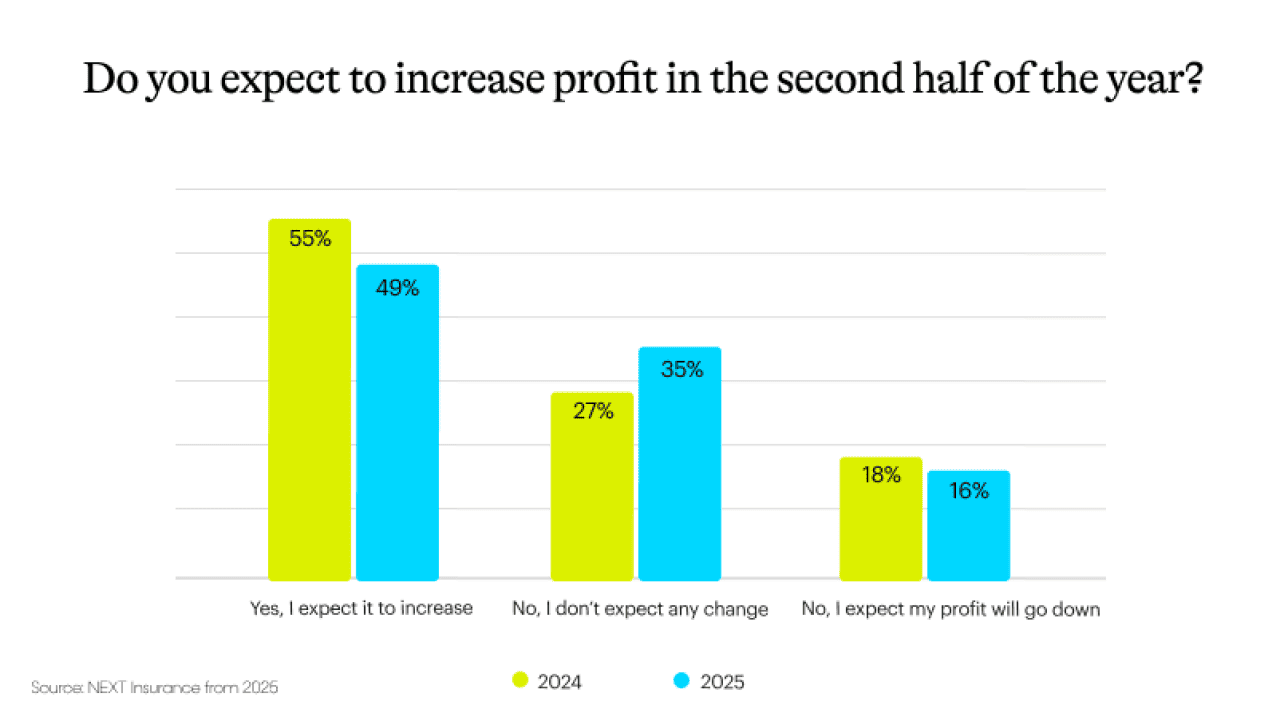
At the same time, business owners who did not expect any change in profits jumped from 27% to 35%. This swing could suggest that many owners are concerned about growth. Slightly fewer business owners expect profit shortfalls at year’s end compared to 2024 (16% vs.18% last year).
Business owners may want to watch the economy closely before becoming too optimistic about big numbers, expansion, and growth.
Business investment spending is flat across the board
More business owners report having extra income to reinvest compared to 2024. However, there were only nominal changes in the five key investment areas to track:
- Customer acquisition
- Product and service development
- Equipment/technology
- Hiring and retaining
- Risk management
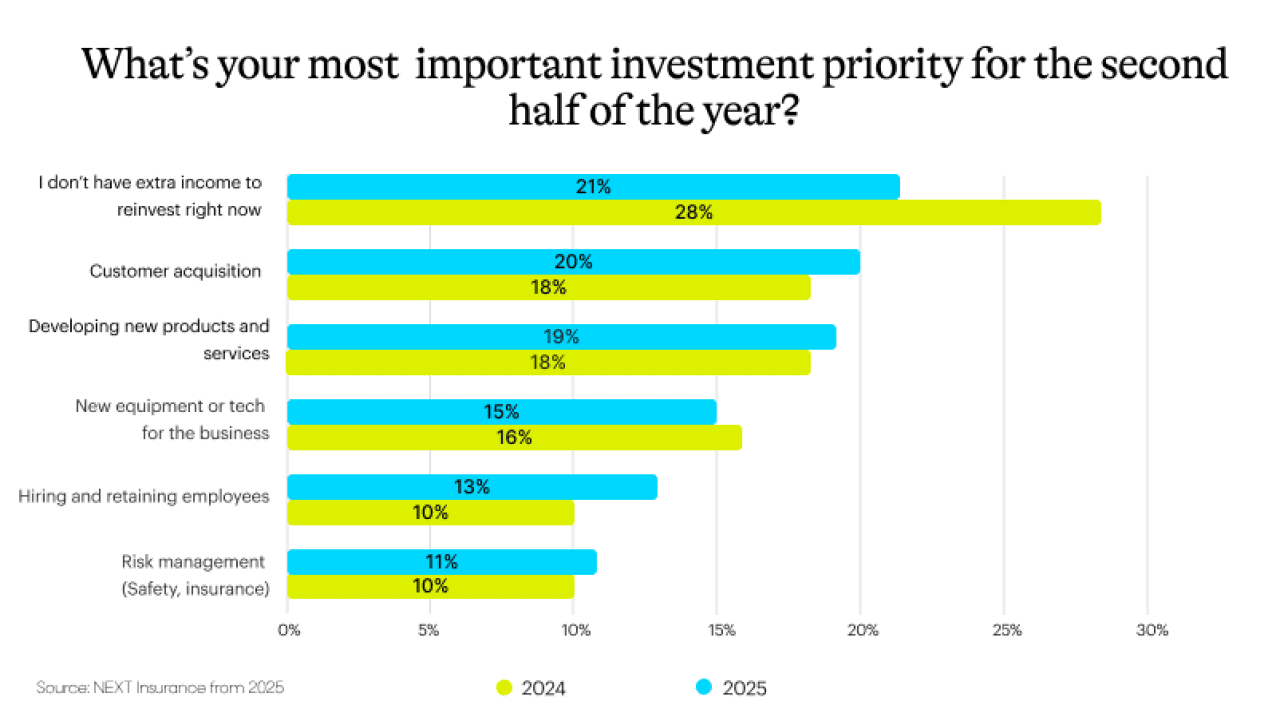
The most significant change reported by business owners is a 3% increase in hiring and retraining employees.
Business owners plan to hire more workers.
While the percentage of business owners who said they plan to hire in 2024 and 2025 remains flat, the number of employees businesses intend to hire has increased as we approach the holiday sales quarter.
Thirteen percent of business owners planning to hire said they would employ 10 or more new workers, and 12% said they would hire six to 10 new employees. Both numbers are up 3% from last year.
Those that said they were bringing in just one to five new employees have dropped 5%.
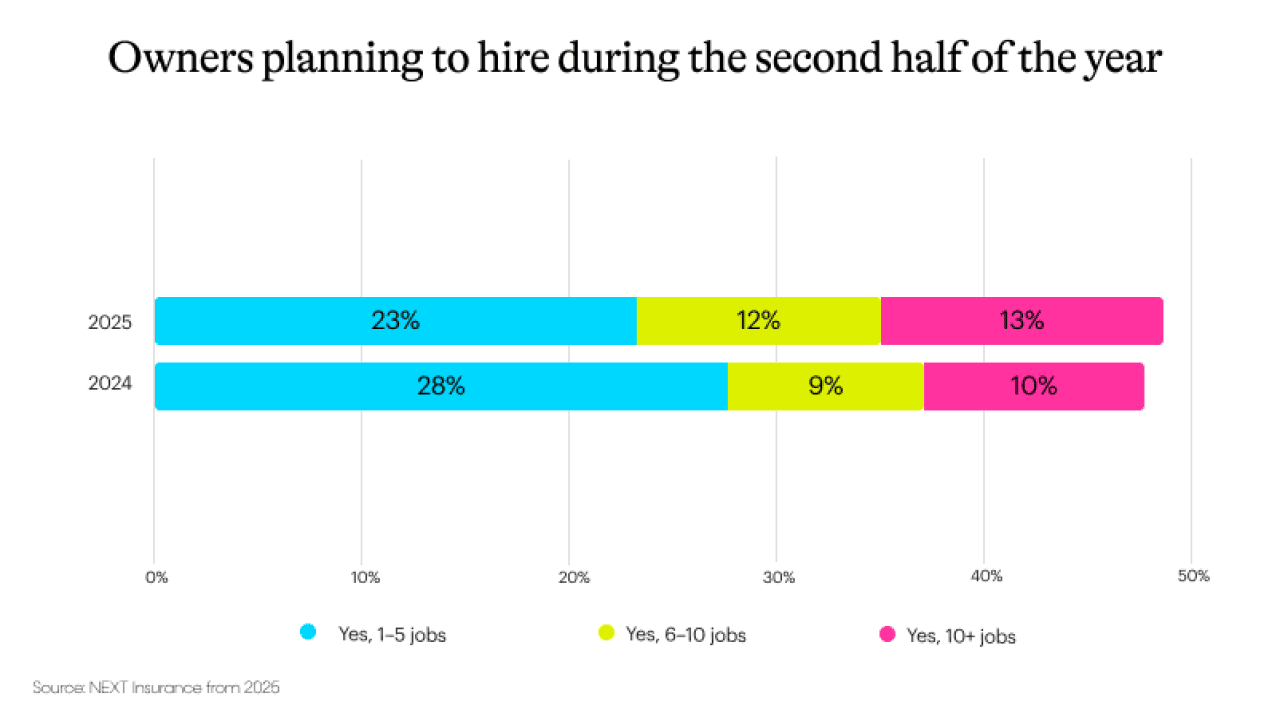
Of course, not every employer is looking to fill their ranks. Some respondents said they don’t need to hire (26%) or can’t afford to (18%), both figures roughly in line with the 2024 numbers.
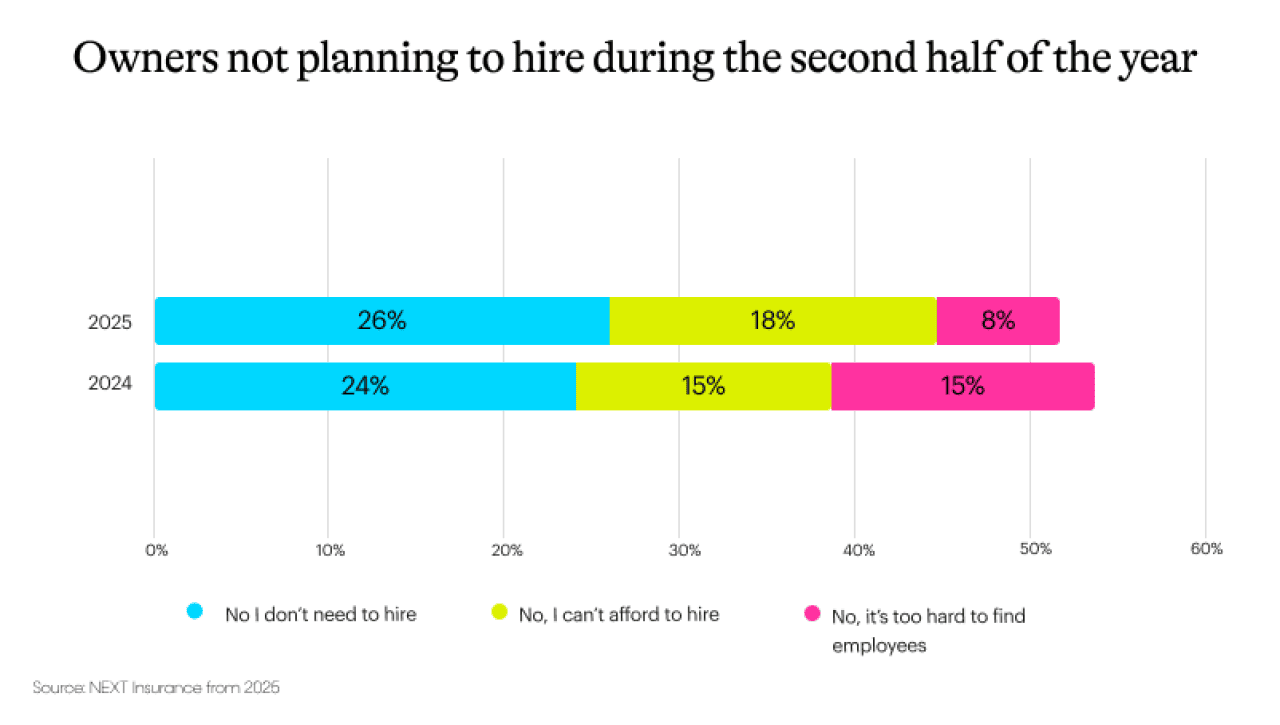
It’s getting easier to hire and find new employees
Only 8% of owners said they are not hiring in the final months of this year because it’s too hard to find employees. This represents a significant drop from 15% of employers who reported it was too hard to find talent at this time last year.
First half of 2025 profits remained steady
The first half of 2025 yielded a slightly better mix of results compared to the same period last year.
The number of businesses that exceeded profit expectations increased slightly from 22% to 20% compared to last year. The largest group of respondents said profits met expectations at 42%.
Fewer business owners reported worse-than-expected profits (36% in 2025 vs. 38% in 2024).
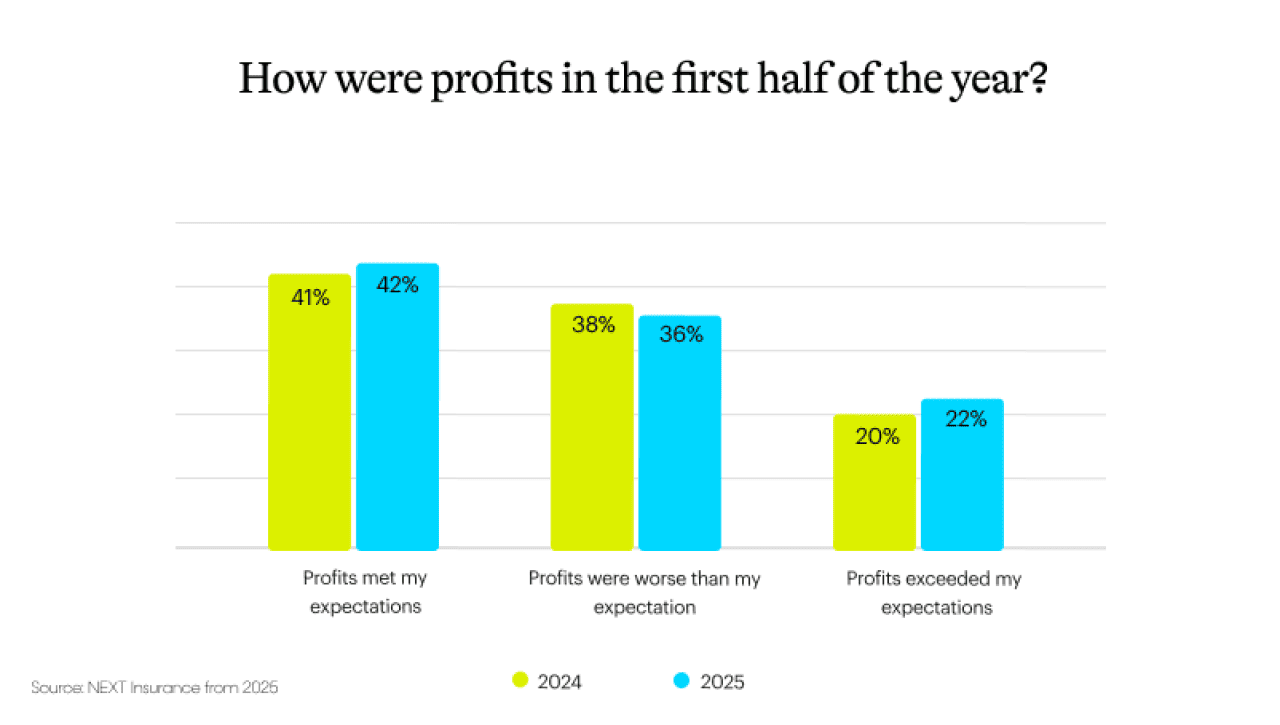
These findings line up with broader national trends. In 2024, the Federal Reserve found just 46% of small businesses turned a profit, while 35% operated at a loss, and more reported revenue declines (41%) than gains (38%) — the first time that’s happened since 2021.
Though profits aren’t yet dropping, slowing demand, rising expenses, and economic uncertainty could keep business owners holding steady.
This story was produced by NEXT and reviewed and distributed by Stacker.
RELATED CONTENT: Tyler Smith Aims To Be First Gen Z Man Elected To Texas House, Vows To Fight For Families






